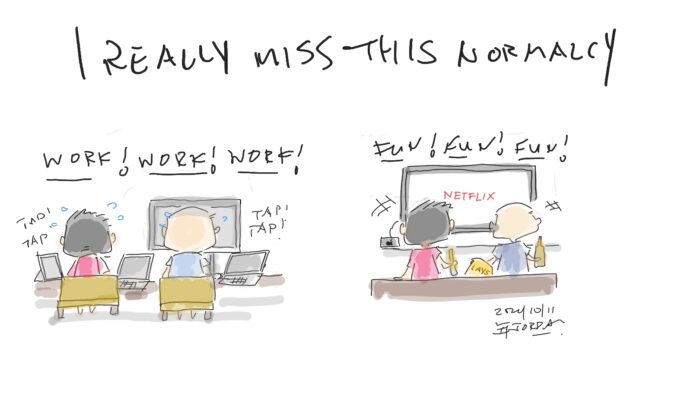
10-12 #Normalcy : TCL CSOT has showcased its new 17” foldable monitor; Apple, Google and Samsung will roll out software updates to enable 5G support on their respective handsets in India; Google partners with Acer, Lenovo, Asus on new cloud gaming Chromebooks; etc.

According to TF Securities analyst Ming-Chi Kuo, Apple’s global supply chain management strategy continues to change in response to the de-globalization trend, mainly to reduce the assembly business in China. The Indian company Tata Group may cooperate with Pegatron or Wistron in the future to develop the iPhone assembly business. More than 80% of the iPhones made in India (by Foxconn) are currently to meet domestic demand. The main non-China production site for MacBook in the future may be Thailand. All MacBooks are currently assembled from production sites located in China. (Twitter, Apple Insider)
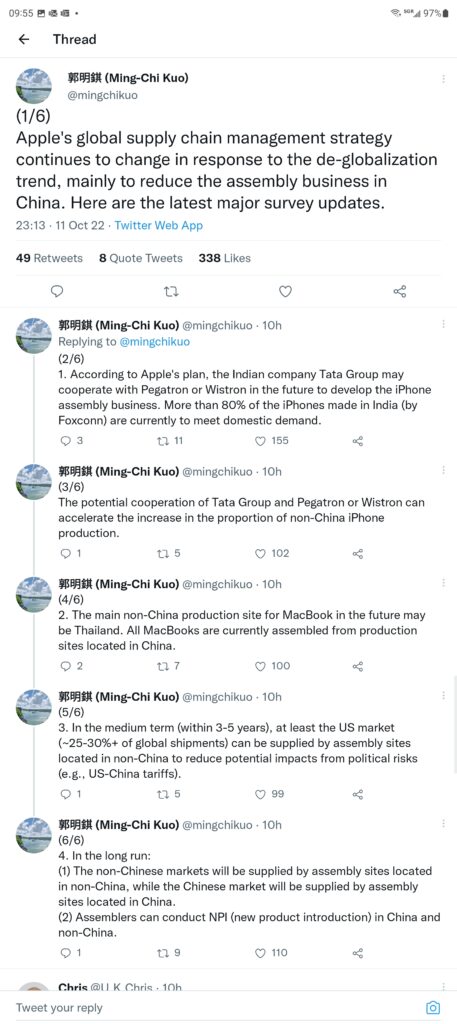
German airline Lufthansa has caused some controversy among its customers by claiming that it is now banning Apple AirTags in checked luggage from its flights. Despite tweets from Lufthansa’s official Twitter account saying that the trackers are considered “dangerous goods”, the company now says that it is not banning Apple’s AirTag. According to Lufthansa, owners of AirTag (and presumably other similar trackers) must turn off the devices before checking their bags. The company then justified its decision on the grounds that the International Civil Aviation Organization (ICAO) guidelines state that objects with a transmission function must be deactivated during a flight. (Liliputing, 9to5Mac, NY Times, The Points Guy, Twitter, Airways Magazine)
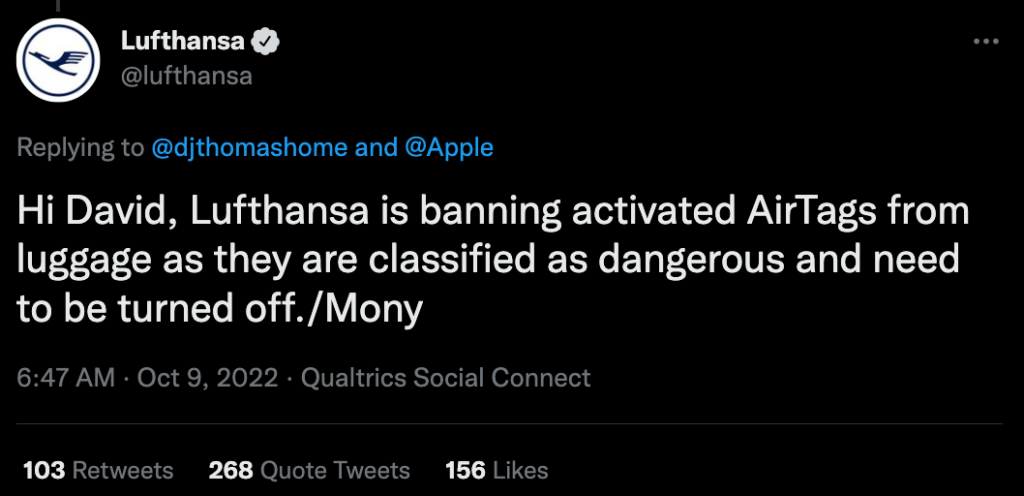

Declines continued for the traditional PC market as global shipments totaled 74.3M units during 3Q22 (3Q22), according to IDC. Cooling demand and uneven supply have contributed to a year-over-year contraction of 15.0%. However, shipment volumes remain well above pre-pandemic levels when PC volumes were largely driven by commercial refreshes due to the looming end of support for Windows 7. (CN Beta, IDC)
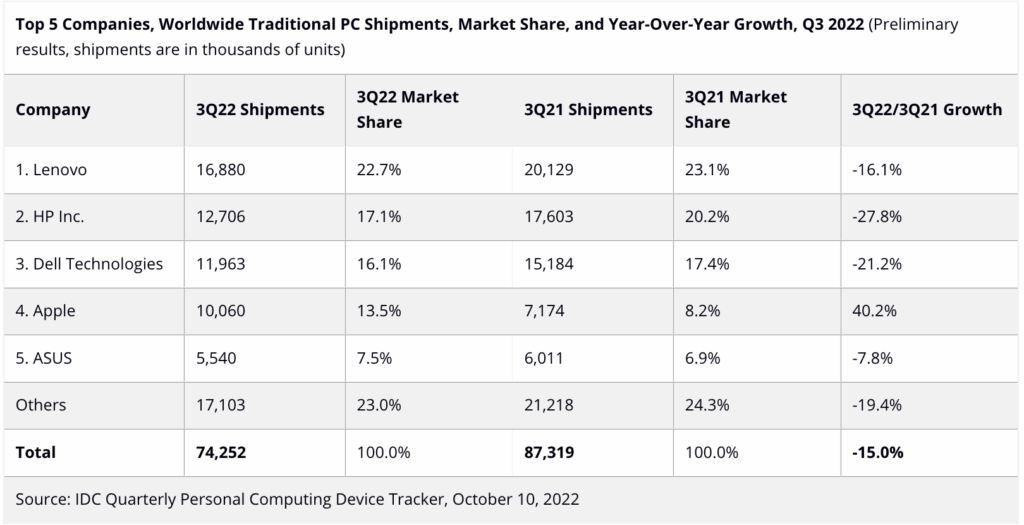
The global PC market faced a significant drop in demand in the third quarter of 2022. Total shipments of desktops and notebooks fell 18% to 69.4M units, as existing weakness in the consumer and education segments was exacerbated by more cautious IT spending by businesses. Adverse macroeconomic and industry factors including high inflation, rising interest rates and bloated channel inventories have dented the PC market’s momentum, and are likely to persist into 2023. Notebook shipments suffered the most, posting a YoY decline of 19% with 54.7M units shipped. Desktop shipments proved more robust due to less reliance on consumer spending, falling 11% year-on-year for a total of 14.7M units. (CN Beta, Canalys)
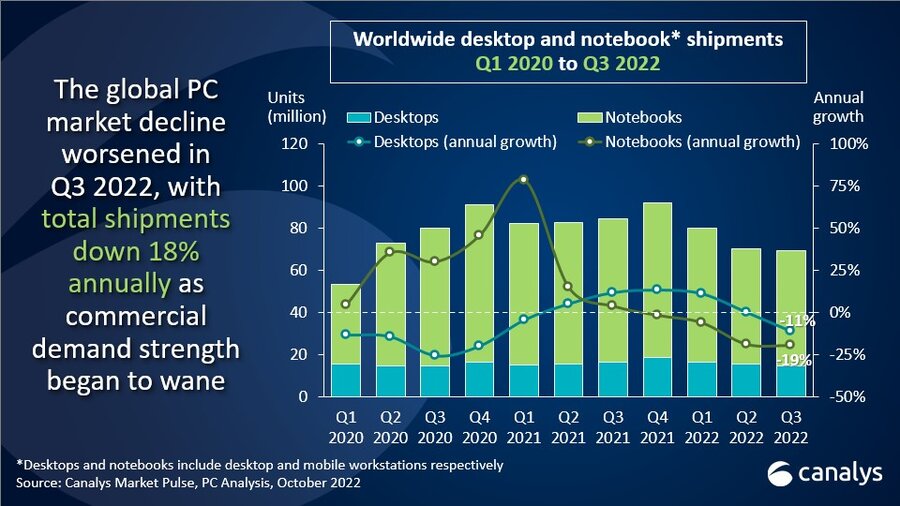
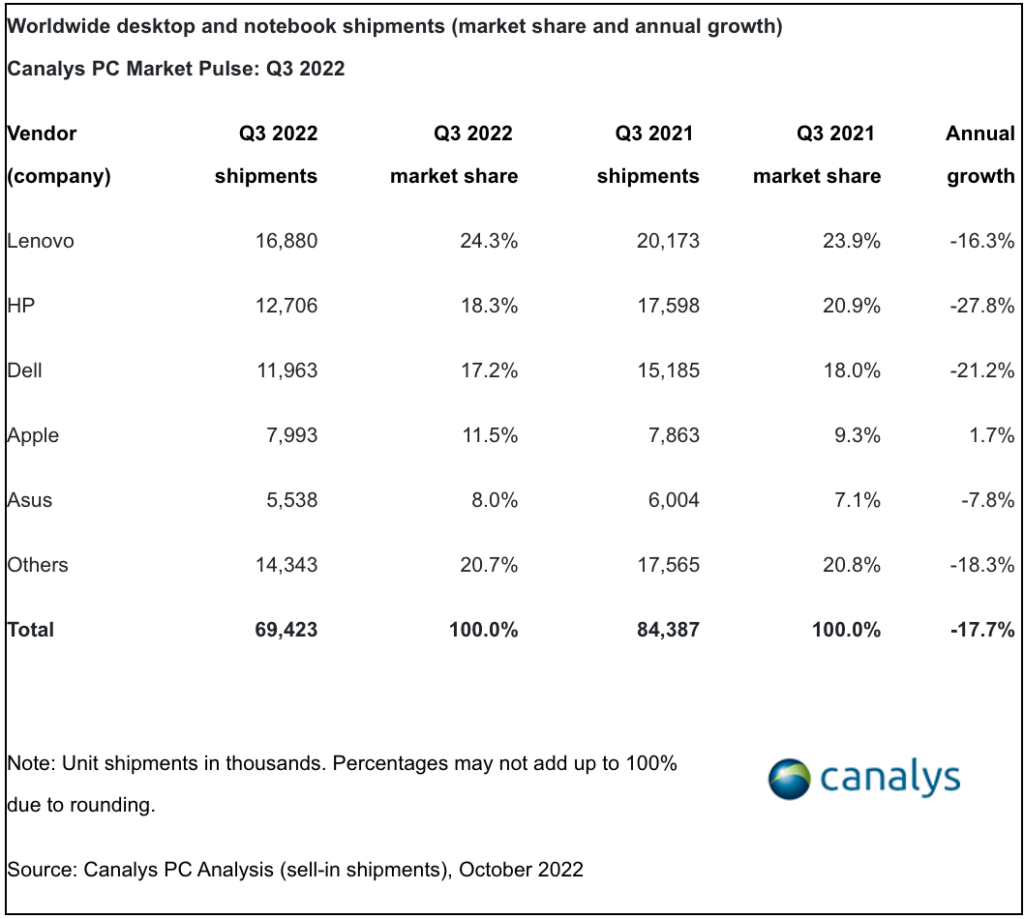
Google partners with Acer, Lenovo, Asus on new cloud gaming Chromebooks. Google has also partnered with cloud gaming services like Nvidia GeForce Now, Microsoft Xbox Cloud Gaming and Amazon Luna to bring marquee titles to users. Google has also teamed up with accessory makers such as Acer, Corsair, HyperX, Lenovo and SteelSeries to make “Works with Chromebook” certified peripherals for these devices. (CN Beta, Google, TechCrunch, XDA-Developers)
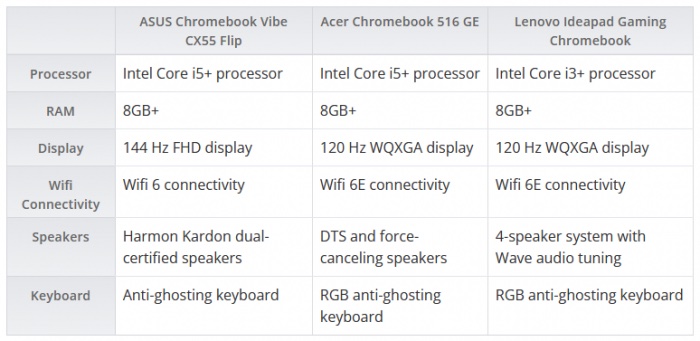

Meta CEO Mark Zuckerberg has indicated that the efforts it began when it acquired Oculus are only the beginning. The hardware is new, the software does not exist yet, and there are still some big decisions for consumers and companies to make as it regards the “metaverse” as a concept. He had thoughts about how Apple is handling its closed ecosystem. Alluding to Apple entering the marketplace with a product relatively soon, he is clear that he thinks that Apple is making moves to handicap Meta in the marketplace now, financially and otherwise.(Apple Insider, Twitter, The Verge)

Meta has announced a partnership with Microsoft to bring new content, including Windows apps and Teams tie-ins, to Meta’s metaverse hardware efforts. Microsoft CEO Satya Nadella has said that Microsoft Teams will integrate with Quest devices and that Microsoft will provide a way to stream Windows apps to Meta’s headsets. He has also revealed that Microsoft’s streaming game service, Xbox Cloud Gaming, will arrive on Quest devices sometime within the coming months. (The Verge, Microsoft, TechCrunch)
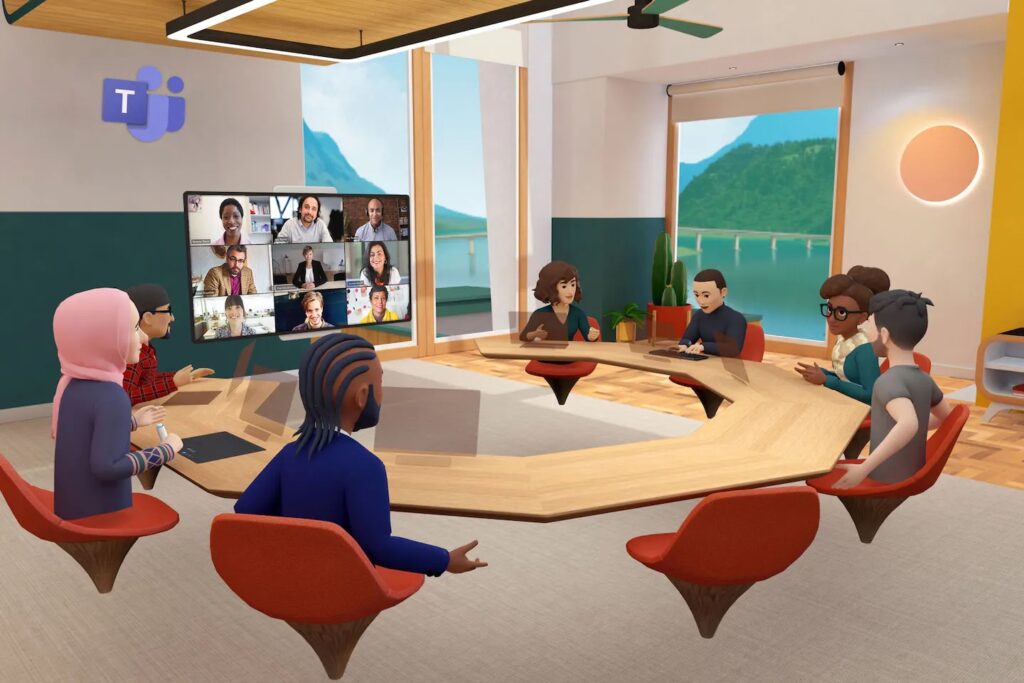
Meta has announced that the avatars in the metaverse will have legs. Meta says “legs have been one of the most requested features on our roadmap, and it’s been a significant area of our focus”. These upgraded avatars will initially be available in Horizon Worlds before Meta opens them up to other developers. Meta has created a software development kit so the avatars can be used in third-party virtual reality experiences and other apps.(Engadget, Oculus, TechCrunch, CN Beta)
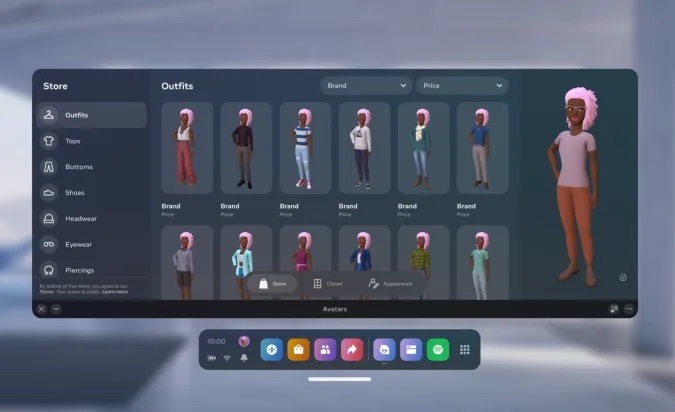

Samsung Electronics has announced a partnership with leading international ODM (Original Development Manufacturing) companies such as Atmaca, HKC and Tempo — a collaboration that will enable non-Samsung smart TV models to use Tizen OS for the first time. New TVs from Bauhn, Linsar, Sunny, Vispera and other brands will be available in Australia, Italy, New Zealand, Spain, Türkiye and the United Kingdom in 2022, allowing more consumers to enjoy a premium smart TV experience enabled by Tizen, an open source OS for Samsung Smart TV.(Engadget, Samsung, CN Beta)
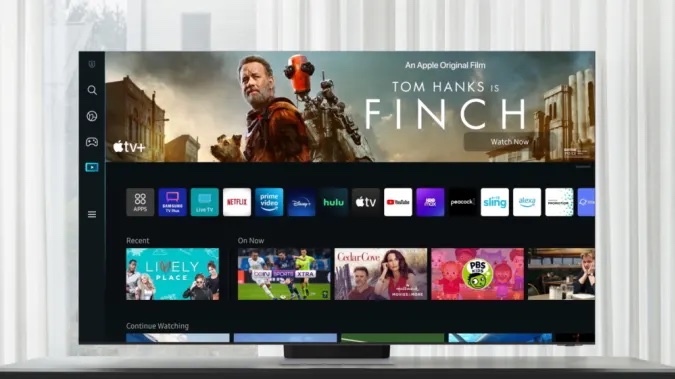

Federally funded electrical car tax credit contained within the Inflation Reduction Act signed into legislation in summer 2022 have Volkswagen Group, and particularly Audi, taking a tough take a look at increasing its manufacturing footprint in North America — doubtlessly together with what could be Audi’s first plant within the U.S. Oliver Hoffmann, head of technical growth for Audi, has indicated that the brand new guidelines “will have a huge impact on our strategy here” in North America. Under former CEO Herbert Diess, VW Group’s manufacturers dedicated to phasing out inside combustion autos throughout a lot of the world by 2035, and have been working to consolidate their scores of future EVs onto a single platform. (CN Beta, Auto News)
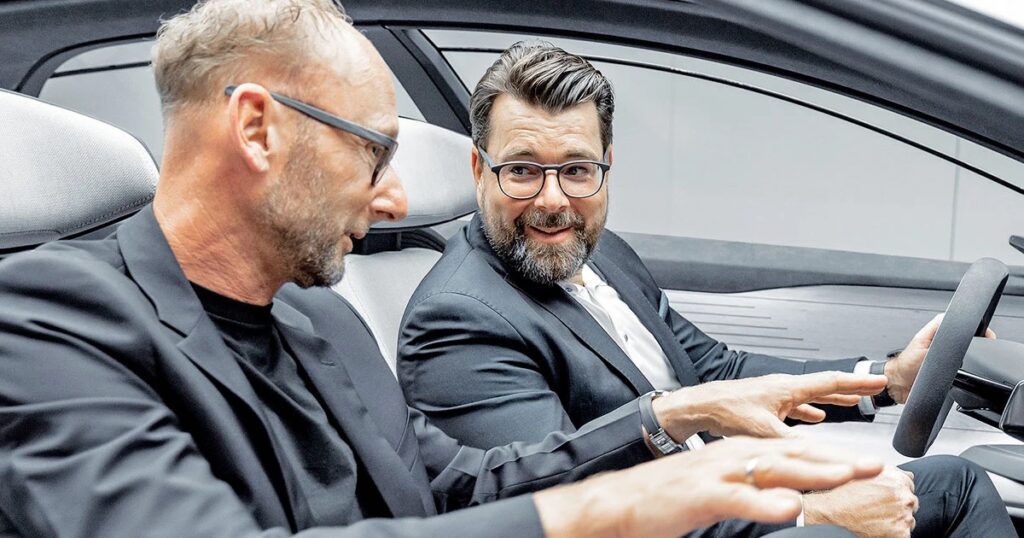
Google has announced to shut down the Assistant Driving Mode Dashboard that was announced in 2019. Google will shut down the entire Assistant Driving Mode Dashboard in Nov 2022. Driving Mode, another name for the car-optimised experience in Google Maps for Android, will continue to exist. Shortcuts for calling and messaging are included on the homescreen, along with audio controls and media choices. Shortcuts can be accessed, after starting the driving navigation. (CN Beta, Business Standard, 9to5Google)
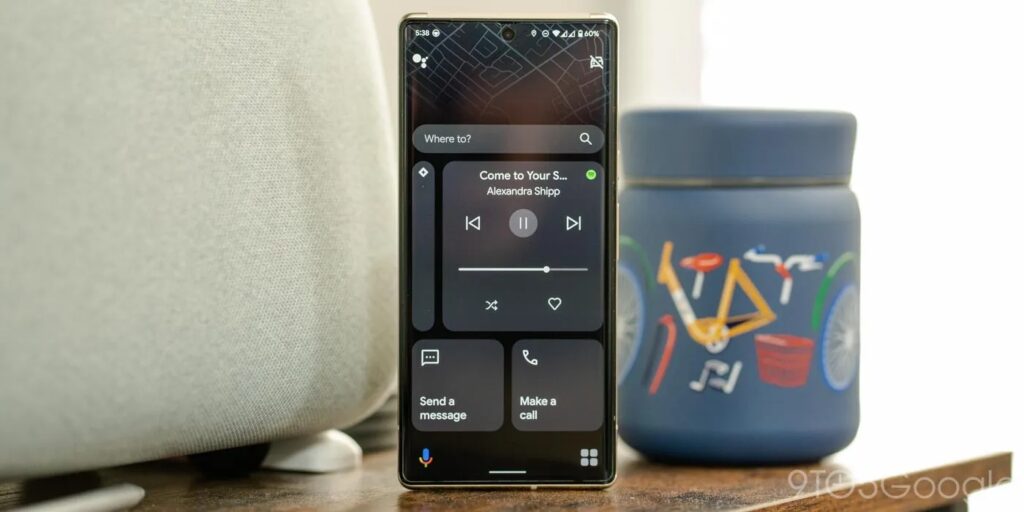
Carmakers in India have proposed cutting to 30% the tax rate on imported cars as part of a trade deal with Britain, an unprecedented move that could ease access to one of the world’s most protected automobile markets. It is the first time that car makers have backed such cuts, caving to pressure from a government that wants them to give up their protectionist position and lower entry barriers. Import taxes from 60% to 100% in the world’s fourth-largest car market rank among the highest globally, drawing criticism from companies such as Tesla, which shelved entry plans because of the high tariffs. Lobby group the Society of Indian Automobile Manufacturers (SIAM) has allegedly written to the government backing phased cuts to 30% over 5 years, following a grace period of 5 years with none. (CN Beta, Reuters, Business Standard)
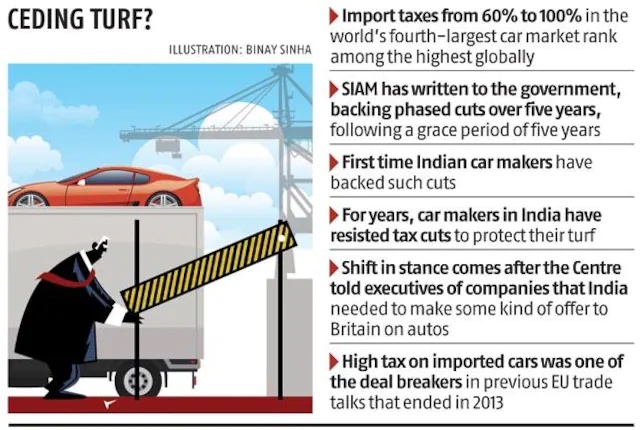
Delta Air Lines is investing USD60M in startup Joby Aviation, which is planning to build and operate an electric vertical takeoff and landing aircraft, or eVTOL, effectively an air taxi. Delta will also have an exclusive 5-year partnership with Joby operating eVTOLs as part of the Delta network. Initially, Joby and Delta will target eVTOL service to and from airports in New York City and Los Angeles, though the companies envision the service growing to other airports around the country and eventually overseas. (CN Beta, CNBC, TechCrunch)
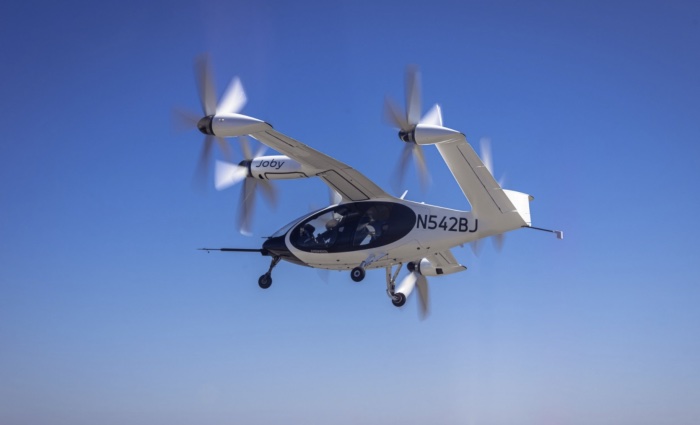

OpenSea, the largest non-fungible token (NFT) marketplace in terms of trading volume, will now support Avalanche. The platform will now allow creators to mint, list and trade NFTs on the layer 1 network. OpenSea, the world’s largest NFT marketplace, will operate on the blockchain alongside existing platforms like NFTrade and other Avalanche-focused NFT marketplaces, including Joepegs and Kalao. With Avalanche, OpenSea users will be able to settle NFT transactions in under a second with low transaction fees. To date, over USD20B in volume has been traded across about 80M NFTs on OpenSea. In January, the platform hit a USD13.3B valuation, when the subsector was exploding in popularity.(CN Beta, Coindesk, TechCrunch, Twitter)
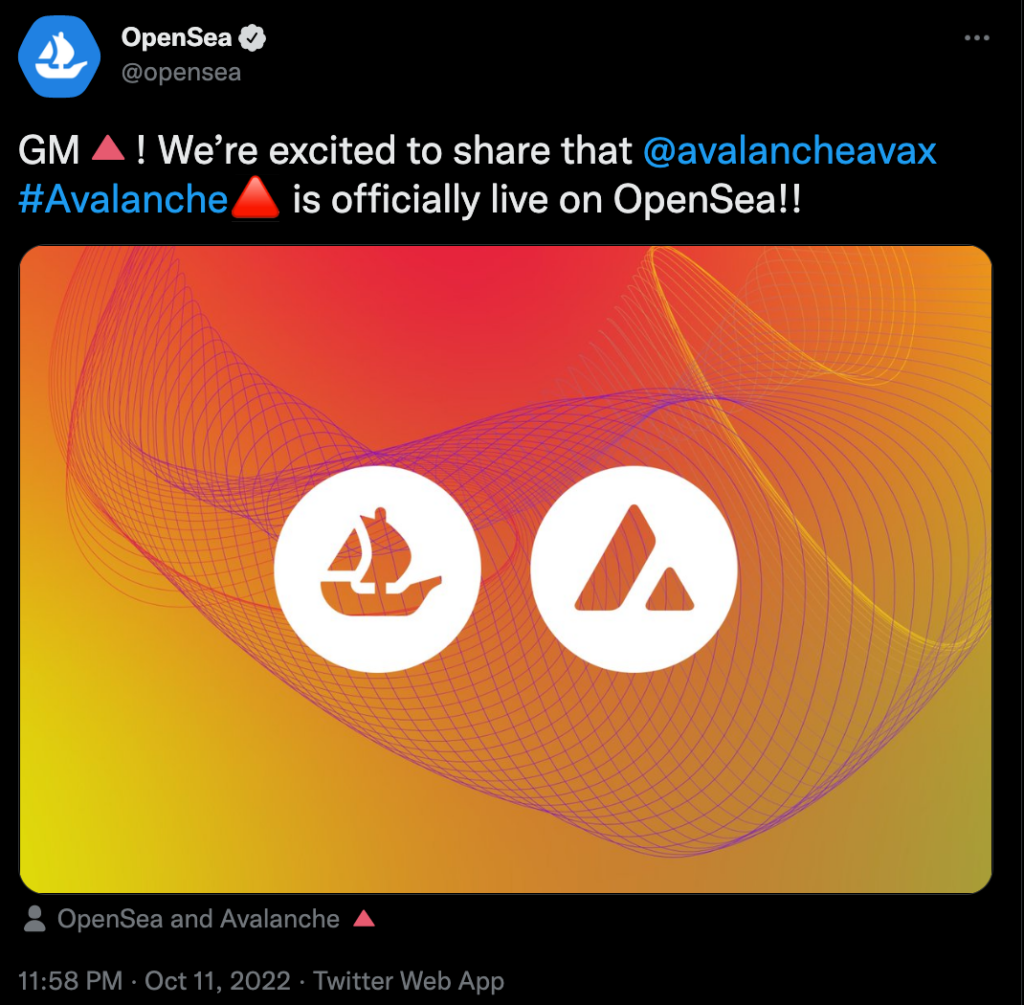

Apple is allegedly preparing for the 2nm generation, and will work with TSMC to build the most advanced chips developed by Apple. The FinFET process of the company will be changed to Nanosheet’s surrounding gate transistor (GAA) structure, and there will be a great revolution in the back-end test supply chain. It is rumored that Apple has started a three-year plan. It is expected to gradually replace the existing test equipment in 2022~2025, and strive to fully upgrade to meet the 2nm chip generation. High-end wafer testing equipment will continue to be willing to replace Apple’s high customers It is provided by Teradyne, a major American manufacturer, such as the UltraFLEXplus testing machine launched by Teradyne. The 2nm chip will be handled by TSM’’s huge internal wafer testing (CP) department in addition to TSMC’s advanced process and even the advanced packaging of mobile phone application processorsThe number of high-end testing machines required by Apple in one year can reach 1,150~1,250 units. It is expected that Apple will gradually replace and upgrade during the period of 2022~2025. As for the old test machines, it is expected to be replaced or sold to other Taiwanese professional testing foundries. (CN Beta, Notebook Check, Digitimes, Digitimes)
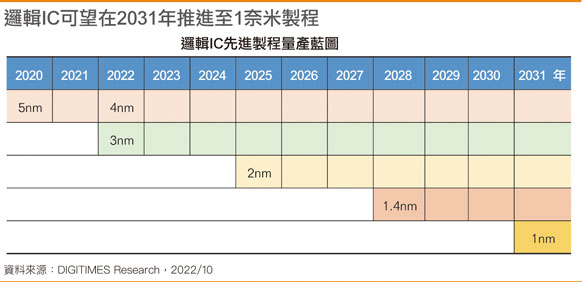
TSMC, the world’s largest foundry company, has reportedly overtaken Samsung to the top spot in global semiconductor sales. The Taiwanese firm generated NTD613B (about. USD19.3B ) in semiconductor sales in 3Q22. Its South Korean rival made KRW24-25T (USD17.2B) during the same period. Samsung’s over-reliance on memory chips has affected its semiconductor earnings this past quarter. The company’s operating profit from the semiconductor business in Jul-Sept 2022 was KRW6T. But more than 90% (over KRW5.5T) of that came from the memory segment. Application processors and other semiconductor units hardly made any money. (Android Headlines, Nocutnews)
Semiconductor manufacturers worldwide are forecast to expand 300mm fab capacity at a nearly 10% compound average growth rate (CAGR) from 2022 to 2025, reaching an all-time high of 9.2M wafers per month (wpm), SEMI has announced in its 300mm Fab Outlook to 2025 report. Strong demand for automotive semiconductors and new government funding and incentive programs in multiple regions are driving much of the growth. New fabs announced by companies including GlobalFoundries, Intel, Micron, Samsung, SkyWater Technology, TSMC and Texas Instruments are ramping in 2024 or 2025 to help meet the growth in demand. (CN Beta, SEMI.org, PR Newswire)
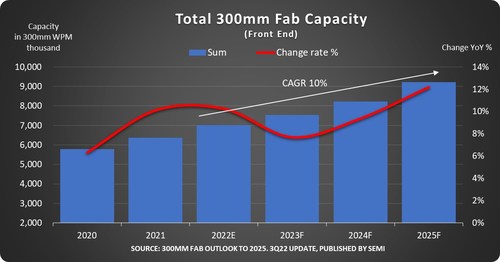

TCL CSOT has showcased its new 17” foldable monitor, which uses a self-luminous “inkjet printing OLED technology” for its screen display, which offers bright and vivid colours. This new screen type the TCL IGZO inkjet-printed OLED folding monitor adopts can also be in use on notebooks, tablets, and monitors. When it comes to the strength of this folding display, it came to be put to use effectively for 5 years without going bad. Its dynamic bending life brags of over 100,000-200,000 folding cycles, which aids the monitor to be in use for a long period. The credits for the development of this folding display go not only to TCL but also to Guangdong Juhua. The latter focuses on the development of high-resolution, flexible rollable, and printed quantum dot displays.(CN Beta, Techgoing)
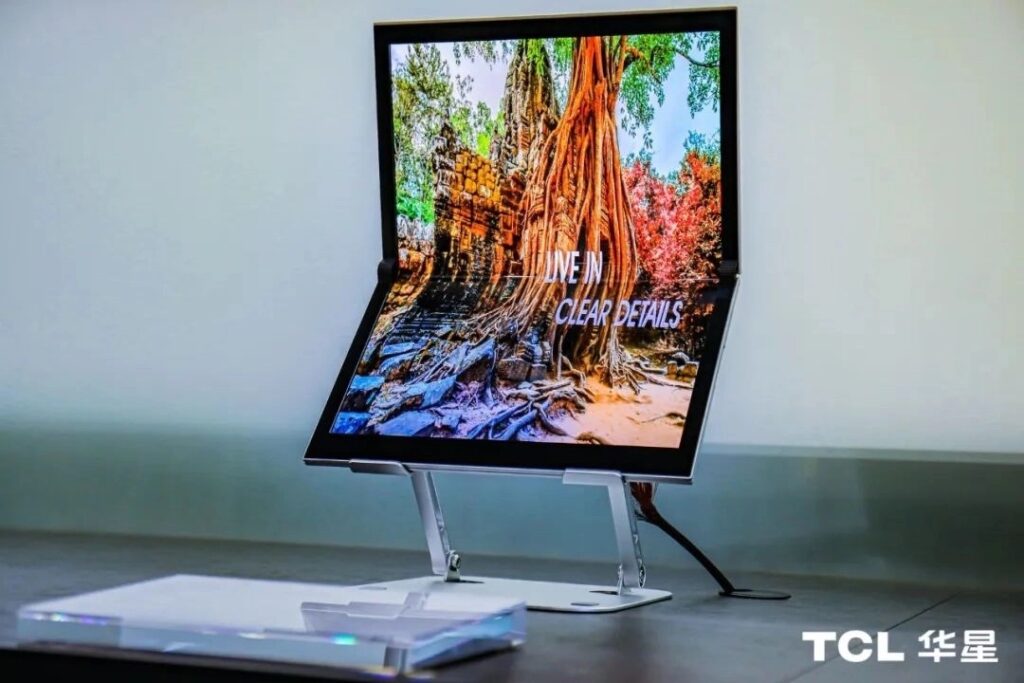
TCL CSOT has officially announced that it has reached a cooperation with Mercedes-Benz, and claimed the world’s first in-vehicle display screen on the VISION EQSS that traverses the entire A-pillar surface. This display adopts a completely seamless ultra-thin integrated design, which integrates the instrument panel, central control and passenger entertainment display, and can complement the 3D real-time navigation system. The display also uses Mini LED technology, which can rely on intelligent algorithms to adjust the brightness of each area individually.(CN Beta, EET-China, ECCN)
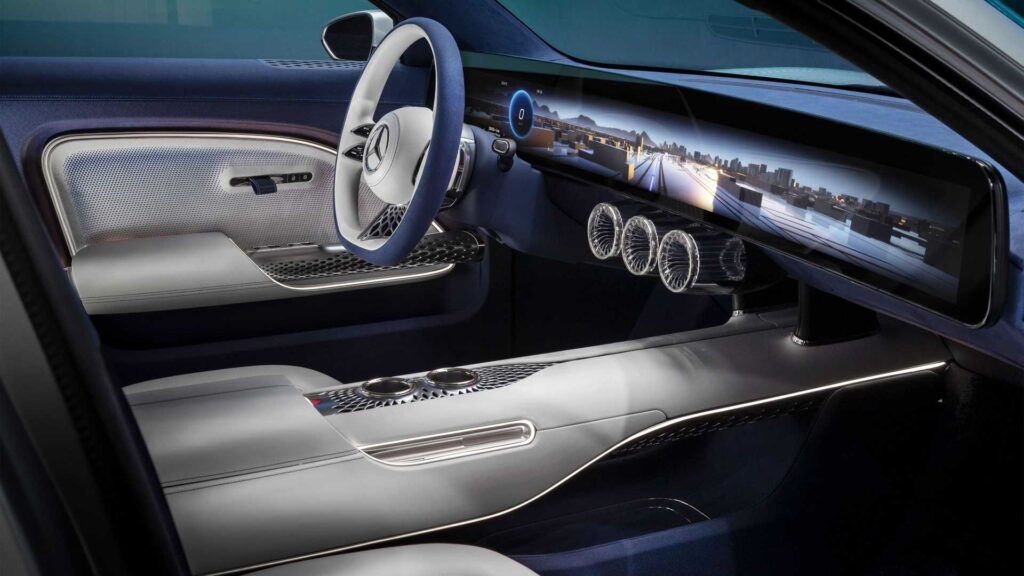
Taiwan Surface Mounting Technology (Taiwan SMT) will undertake SMT process for mini LED backlighting of Apple’s 12.9″ iPad Pro and MacBook Pro, becoming an Apple supply chain maker for the first time, according to Digitimes. Apple is said to have supported Taiwan SMT financially. Furthermore, the report claims that Apple is assisting with the expansion of its production lines using dedicated hardware for mini LED deposition. Taiwan SMT’s inclusion seems to be more to expand mini LED backlight usage while hybrid OLED matures and gets close to commercialization. This would mean Apple needs to continue using mini LED as a main display technology until 2024 at the earliest. (Apple Insider, Digitimes, Sina)
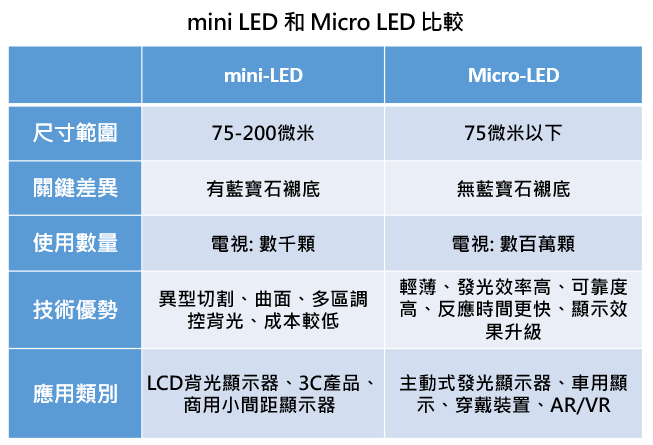

Honda and LG Energy Solution (LGES) have announced that their new joint venture (JV) battery plant will be located in Fayette County, Ohio, about 40 miles southwest of Columbus, where the two companies will commit to investing USD3.5B, pending final government approvals. The companies’ overall investment related to the JV is projected to reach USD4.4B. The joint venture between Honda and LGES will be formally established in 2022, pending regulatory approvals. The two companies plan to begin construction in early 2023, in order to complete the new production facility by the end of 2024. The plant aims to have approximately 40GWh of annual production capacity as it starts mass production of pouch-type lithium-ion batteries by the end of 2025. Honda already has announced plans to begin production and sales of Honda EVs in North America in 2026, based on its new Honda e:Architecture.(CN Beta, PR Newswire, Motor1, Business Insider)
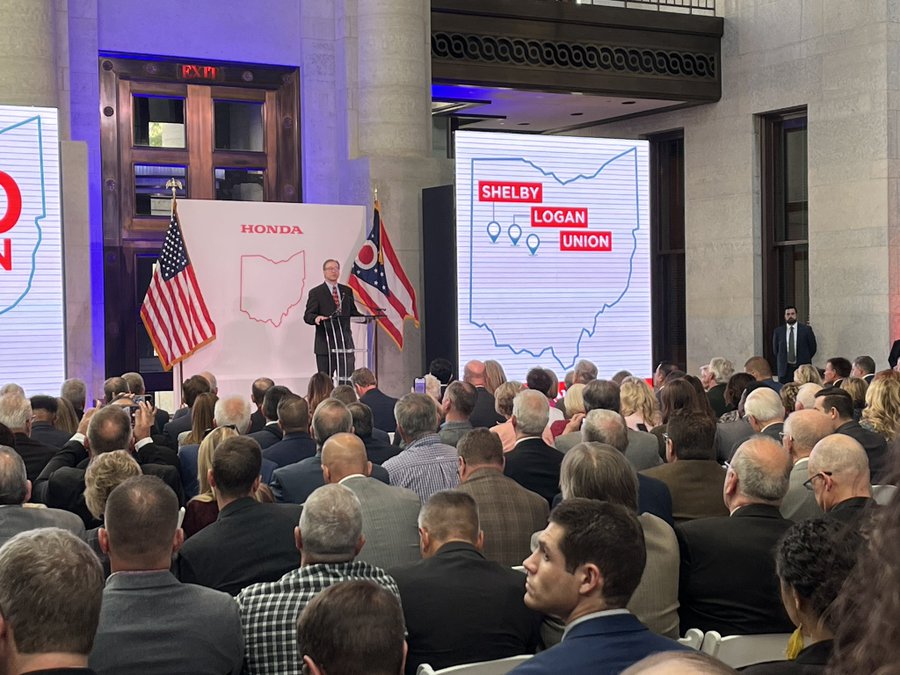

Apple is set to shift from the Lightning charging port on the iPhone and other devices to USB-C to abide by a new European law, but the company is still planning on a wireless-first future. Bloomberg’s Mark Gurman believes that Apple will beat the legislation’s date of application in late 2024 with most of its products. The iPhone 15, he claims, will beat the EU’s mandate by a year, featuring a USB-C port in the fall of 2023. The entry level iPad, the only iPad to still feature a Lightning connector should switch to USB-C by the end of 2022. (MacRumors, Power-On)
Apple, Google and Samsung has said they will roll out software updates to enable 5G support on their respective handsets in India, just days after local bureaucrats began pushing the phonemakers to expedite their efforts. Reliance Jio and Airtel, India’s two largest carriers, have started to offer 5G services in select Indian cities in recent weeks, but many popular handsets in the nation currently do not support the local airwaves. These smartphones have hardware capabilities for 5G, but manufacturers need to work with local network carriers to releasftware updates to enable support for their networks.(TechCrunch, Apple Insider, Economic Times)